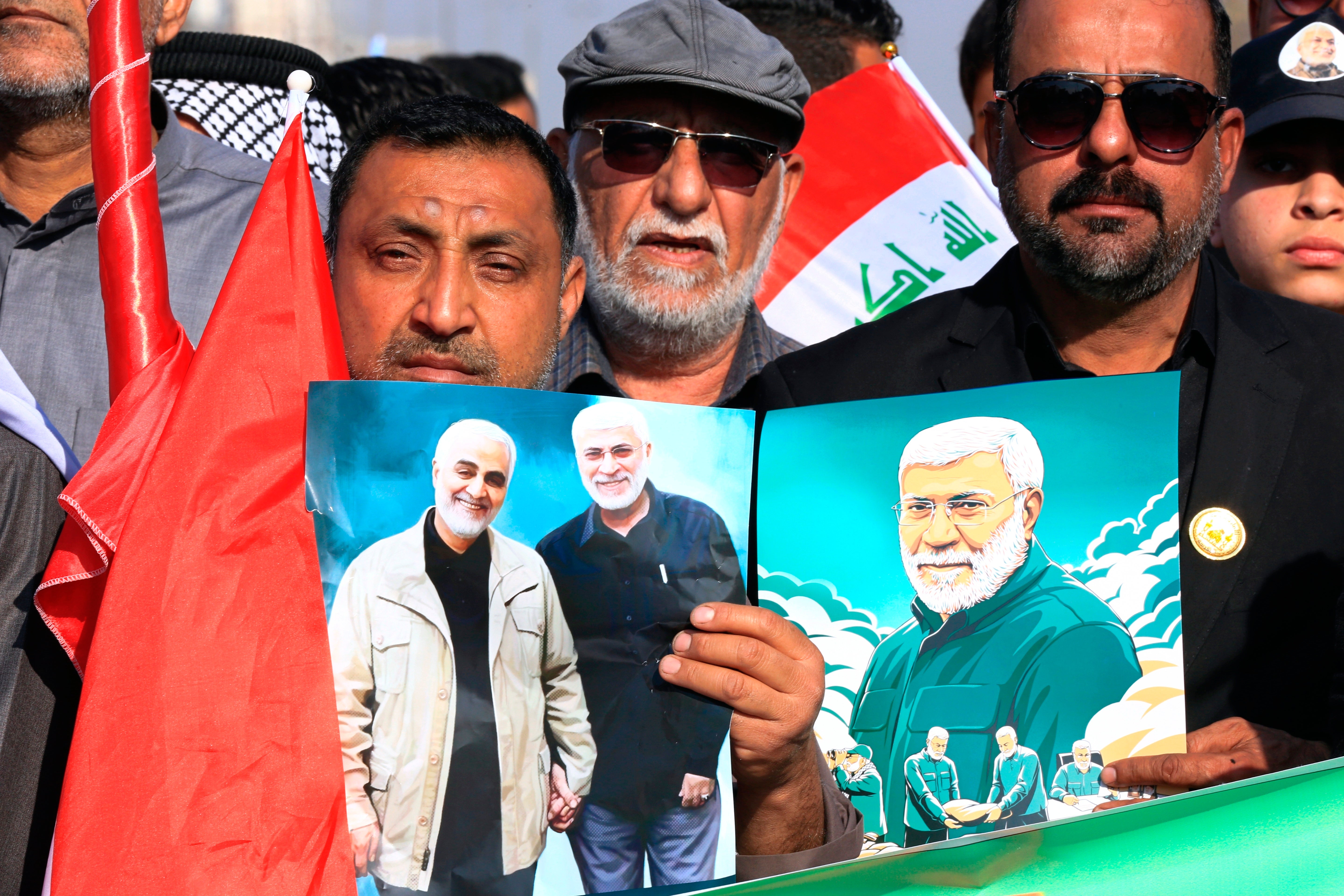US sanctions prominent Iraqi politician over rights abuses
The U.S. Treasury has imposed sanctions on a prominent Iraqi security official, accusing him of serious human rights abuses

Your support helps us to tell the story
From reproductive rights to climate change to Big Tech, The Independent is on the ground when the story is developing. Whether it's investigating the financials of Elon Musk's pro-Trump PAC or producing our latest documentary, 'The A Word', which shines a light on the American women fighting for reproductive rights, we know how important it is to parse out the facts from the messaging.
At such a critical moment in US history, we need reporters on the ground. Your donation allows us to keep sending journalists to speak to both sides of the story.
The Independent is trusted by Americans across the entire political spectrum. And unlike many other quality news outlets, we choose not to lock Americans out of our reporting and analysis with paywalls. We believe quality journalism should be available to everyone, paid for by those who can afford it.
Your support makes all the difference.The U.S. Treasury on Friday imposed sanctions on a prominent Iraqi politician and security official, accusing him of serious human rights abuses.
The Treasury said Falih al-Fayyadh stands accused of “directing and supervising the killing of peaceful Iraqi demonstrators” in 2019 and must be held accountable.
He is the chairman of the Popular Mobilization Forces, an umbrella of mostly Shiite militias, including powerful Iran-backed groups, and served as national security advisor. The umbrella group was formed in 2014 to counter the Islamic State group, following a fatwa from Iraq's top Shiite cleric Ali al-Sistani.
There was no immediate comment from al-Fayyadh.
The growing influence of the Shiite group over Iraqi state affairs — in particular its Iran-backed elements — has alarmed U.S. officials.
Al-Fayyadh was targeted under the Magnitsky Act, passed by Congress in 2012 initially in response to the death of Russian lawyer Sergei Magnitsky, who died in prison after exposing a tax fraud scheme involving Russian officials. The law named after him was expanded and allows the U.S. to target any foreigner accused of human rights violations and corruption.
Anti-government protesters in Iraq have long accused Iran-linked militias of targeting them during mass demonstrations that began in October 2019, when thousands rallied against corruption, unemployment, poor public services and other grievances. More than 500 people were killed during the months-long protests, many of them demonstrators shot by Iraqi security forces.
The protests have since died down, due to the violent crackdown, kidnappings and targeted assassinations of activists, and also due to the coronavirus lockdowns.
Al-Fayyadh has been the head of the Shiite militias during this time and continues to hold the post. Though Iran-backed groups functioning under the umbrella stand accused by activists and the U.S., no official investigation has ever been conducted to identify the perpetrators of the killings of protesters.
It is also unclear how much influence al-Fayyadh had over the operations of individual militia groups, leading some Iraqi officials to speculate over the political implications of the latest sanctions
Al-Fayyadh deputy, powerful militia leader Abu Mahdi al-Muhandis, was considered far more influential over the activities of Iran-backed groups in Iraq. Al-Muhandis was killed in a Washington-directed drone strike last year targeting the top Iranian general Qassim Soleimani outside Baghdad airport.
s, an official